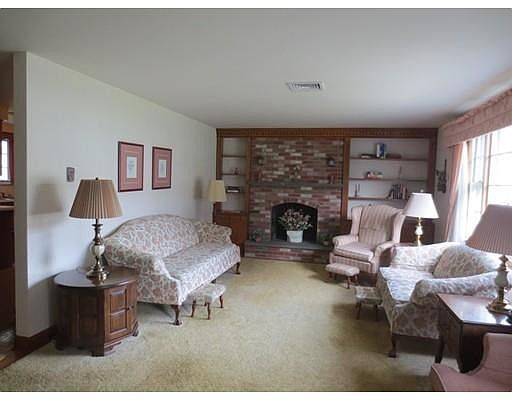My grandparents, like all old people, owned four hundred and seventy three clocks. There were clocks made of wood, clocks with dainty flowers around the edges, clocks imbedded in plaques, and my personal favorite, a clock of the shiniest gold-plated metal that had two columns that spun. My grandmother always had the TV on to a channel that just played classical music to blank screen, because she liked the music without having to look at things (music players were too complex). But I knew the truth. Along the bottom of the blank screen, the time would scroll by constantly. she had managed to turn the TV into a clock.
Like any household with more clocks than people, none of the clocks were accurate. There was at least a five minute discrepancy between each one, leaving any visitor to sit there doing mental gymnastics; “If the clock on the end table says it’s 2:14 but the clock over the doorway says its 12:29, does that mean it’s 1:56 or 4:32?” The confused visitor would then thrust open the blinds (that were always shut, for some reason), only to realize it was actually night.
The biggest burden of having all of these clocks was at the beginning daylight savings. One night, visiting my grandparents by myself, I found myself being tasked with setting all the clocks back an hour. I don’t know a lot about clocks and I have poor hand strength, so it took me a few minutes to figure out how to push out the little lever in the back of each one and spin around the hands so they would show the correct time. All of their clocks had the usual hour and minute hands, but they also had smaller extra dials what would twirl around as well. I really liked to spin the spare dials around, while wondering why they were so small. Wouldn’t it have been better to design a spare hand in the middle of the size of the hour and minute hands, rather than smaller than both?
So around the house I went, setting all the clocks an hour ahead, and all the spare dials on my favorite numbers: either two or three. I even ventured into the deepest corners of the basement to set a clock down there. When I set a the time on my grandfather’s beloved blue-banded wristwatch, he became very agitated. At this point in his life, he was no longer able to verbally communicate, but the time change had upset him. Both my grandmother and I reassured him, but he was anxiously looking at his watch the rest of the night.
At promptly two in the morning, I learned that clocks don’t come with spare dials.
There was a faint high pitched, incessant sound that both rattled and buzzed. I was in a daze, trying to figure out where the noise was coming from. I stumbled around the living room, looking in every corner, but somehow the sound seemed to be coming from everywhere and no where all at once. Finally, I saw it: a modest clock with a single rose painted in the middle, near the dining table was going off. “How strange,” I thought to myself. I spun the dials around a bit, frantically twilling them as the alarm rattled my brain, and eventually the alarm stopped. I set the spare dial to my next favorite number, three.
I no sooner made to long trek back to my bed again when the next alarm went off, drawing me into the kitchen to adjust a slender metal clock. I changed that one too, with a little bit more unease. It wasn’t until the third clock went off that I realized my grave mistake.
Between the hours of two and four, I ran around that house trying to turn off alarms. There was one particularly delightful moment when three different alarms went off at once, a beautiful chorus of misery. The original alarms that I had re-set to three went off again, so to my absolute delight I got to set them twice. There were a few I couldn’t figure out how to adjust, so I just put those in a pile in a closet under some very old, forgotten winter coats.
At four, exhausted and confused, I was heading back to my room when I heard one more alarm. My grandfather was asleep on the couch, his wrist dangling off, and that evil blue wristwatch was going off. I tiptoed over to him took off his watch, but my hands were too tired to be able to loosen the nob. I left the watch, alarm going, buried under a pillow in a different room. At least I learned why he was upset the night before.
The next morning, the house was looking a little more bare.

Do you see all those spaces on the back wall? Those spaces were all clocks, now buried in the depths of the most forgotten closet in the house.
I feigned ignorance about the mysterious misplaced clocks. “Oh did some of your hundreds of clocks disappear in the night? How strange. I have no idea what could’ve happened to them.”
I drove them to church that morning, and during the quiet part of the service, an alarm on my phone went off. My grandmother shot daggers at me with her eyes. I may not know that clocks don’t have spare hands, but I know when a battle’s been lost. I can’t tell you the fate of the clocks in the house. Did the alarms go off the next night? If you listen carefully, they say you can still hear them going off.


